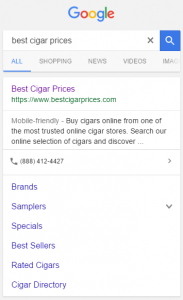
SEO practices are never static, they are always changing. The ones that are trending today will be gone tomorrow, and new trends will arrive.
What changes are we supposed to see in 2016? Let’s find out
Value-oriented content
Content marketing is now the bottomline of SEO. Anyone, who’s connected to the SEO circuit knows this. But content marketing is a loose term, how do you know what type of content is marketable?
If this question is bothering you, here’s the answer:
A marketable content is a blog or an article with value. Such contents offer information, anticipate questions from readers, answer those questions so their confusions are resolved and most importantly, give them a clear roadmap of what actions they need to take.
When you write value-oriented content, it gets shared across social channels, giving exposure to your site as well as to you. Such contents trigger curation. Does that give you any SEO benefit?
It does. Studies indicate more than 80% of search results have Google Map, news, customer reviews and videos as their sources. Content aggregation helps Google and other search engines to pick from a pool of references and value-driven content fosters the aggregation process.
Keyword efficiency metrics
Some believe keywords are dead. Others believe they are alive and kicking. Both are correct, but partially. Keywords are no longer viewed the way they used to be viewed during the heydays of two-way link building. In other words, keywords are not to be used as anchor texts anymore.
Today, SEOs are curious to know a keyword’s ROI. Wondering how it can be measured? The conversion rate tells us about the efficiency of a keyword. Imagine you have keyword A and keyword B for a campaign. Both keywords have just about the same search volume, but 20% of the traffic brought by keyword A converts to sales whereas 5% of the traffic brought by keyword B brings sales. Keyword A and is a better performer in terms of conversion rate.
It has been found that specific keywords account for better conversion rate compared to generic keywords. “Seafood restaurants” may get more search volume than “cheap seafood restaurants in Norman, Oklahoma,” but the latter is long tail and more specific. We can assume people searching with the latter live in Norman, Oklahoma and they want to visit a nearby seafood restaurant which offers quality food at a pocket-friendly price.
Voice search
As more people are accessing the online world through smart devices, the importance of voice search is on a rise. Voice searching is possible through personal digital assistants – the likes of Siri, Cortana and Google Now are making the searching process humanlike. SEOs need to understand where they fit in this.
Luckily for them, the fundamentals of voice search are not so different than the traditional desktop-based search. Users enunciate search queries instead of typing them in the search box and the digital assistant lays down a bunch of results. That apart, it gather information about you from your search query.
On a superficial level, however, there are differences. Siri evidenced on couple of occasions that its sense of humor is not dry. The humor that it has displayed was put together by responses from intelligent and humorous individuals. To optimize a site for voice search, marketers need to follow the latest mobile SEO guidelines and improve the site for all handheld devices.
Local search
It’s nothing new. Local SEO has been around for long. In 2016, however, its importance may increase like never before courtesy to previous year’s Mobilegeddon update and geo-specific keywords.
Local businesses are either searched and found by consumers with the help of apps or when users search with location-specific key-phrases. Optimizing a site for location specific keywords is easy because a comparatively low volume of competition. Studies have revealed that almost 50% of mobile visitors get lead from local searches, and over 60% find location information in advertisement.
As for mobile apps, marketing around them is a bit difficult because the top ones get all the traffic. That said, the advantage of geo-specific apps is that they target a very small number of audiences and reaching out to them is quite easy. Mobile users tap on the app icon on the screen instead of using the search engine, which means promotional marketing can be useful for popularizing a mobile app.
The competition
Every SEO vendor is promoting himself, making the SEO landscape intensely competitive. To stay ahead of others in this rat race, you need to conceptualize and apply the trends described above. Or else, 2016 will remain a year when you failed and others succeeded.
Image Courtesy: pixabay.com
Digital & Social Articles on Business 2 Community(63)





